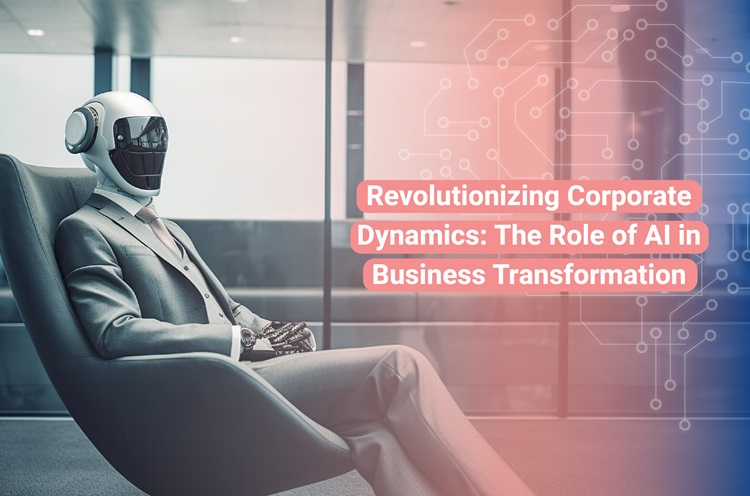The advent of Artificial Intelligence (AI) has revolutionized the corporate landscape, enabling businesses to leverage the power of data-driven insights to create more efficient and innovative transformation initiatives. AI has enabled companies to better manage the complexities of their transformation initiatives, from increasing customer satisfaction to streamlining operations. As AI continues to evolve, its potential to revolutionize the corporate landscape will only expand, offering new opportunities and challenges for businesses willing to embrace its capabilities.
AI Is Revolutionizing How Companies Manage Transformations
The integration of AI into the corporate setting has enabled companies to better manage the complexities of their transformation initiatives. AI has enabled companies to leverage the power of data-driven insights to create more efficient and innovative transformation initiatives. The adjacent “self-learning” cycle is the heart of the data-driven approach, enabling companies to capture insights once unobtainable, synthesize them with a stockpile of timeless insights, and apply both to boost the success of current and future transformation initiatives.
By harnessing the power of initiative data, companies can now have a window into actual performance as it unfolds. This is enabled by the analysis of the anonymized transformation data of other companies. The secondary learning cycle is also enabled by the analysis of the anonymized transformation data of other companies. This allows companies to identify issues that are corrected with transformation leaders involvement tend to fare better than those that initiative owners manage themselves.
Importantly, algorithms are not meant to replace the human interactions between the transformation management office (TMO) and initiative leaders. Instead, they are meant to augment and enhance the decision-making process. From BCG’s analysis of thousands of real-world initiatives, we distilled four golden rules for initiative success:
1) ensure that the initiative is well-defined
2) have a clear owner
3) ensure that the initiative is well-executed
4) have a clear governance structure.
AI strategy in business: A guide for executives | McKinsey
Can machines automate strategy development? Joanna Pachner of McKinsey has written a lot about cognitive biases and social dynamics that can skew decision making. She makes the distinction between strategic and tactical and believes that AI has been embraced by many business functions, but strategy seems to be largely immune to its charms.
Yuval Atsmon, a senior partner at McKinsey, agrees that AI has had limited adoption in the realm of strategy development. He believes that one of the challenges most strategists face is the overwhelming complexity of the world we operate in—the number of unknowns, the information overload. Joanna argues that AI can provide strategists with a “Spock-like” companion who is dispassionate and purely analytical.
Yuval explains that when people talk about artificial intelligence, they include everything to do with analytics, automation, and data analysis. He is intrigued by things at the boundaries of what seems possible, which is not a bad analogy—for Star Trek fans anyway.
Conclusion
The integration of AI into the corporate setting heralds an era of unprecedented efficiency, innovation, and transformation. From streamlining operations to enhancing decision-making processes, the utilization of AI has propelled businesses into new dimensions of efficiency and innovation. Whether through chatbots for customer service or recommendation engines for tailored product suggestions, AI enhances customer engagement and satisfaction. As AI continues to evolve, its potential to revolutionize the corporate landscape will only expand, offering new opportunities and challenges for businesses willing to embrace its capabilities.
